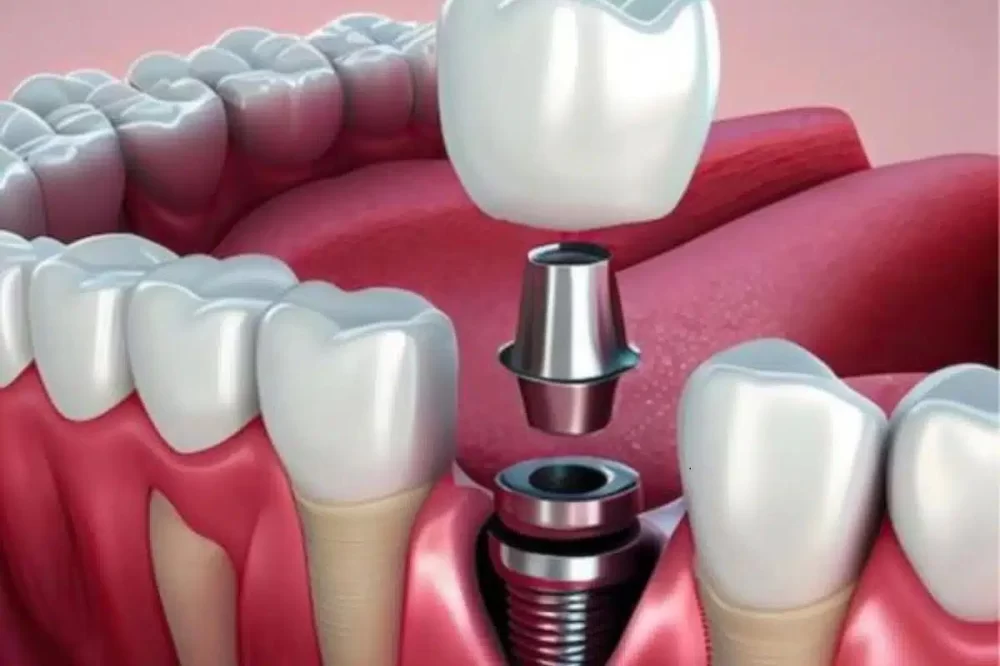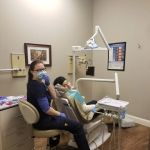
Why Dental Implants Are a Great Choice for Your Smile
Having dental implants can truly transform your smile and boost your confidence. As someone who has undergone the process myself, I can tell you that the results are nothing short of life-changing. Unlike dentures or bridges, dental implants are designed to mimic your natural teeth, making them a permanent solution for missing teeth.
When I first decided to get dental implants, I had many questions. Was it going to be painful? How would I take care of them? What happens if something goes wrong? I quickly learned that, while dental implants are incredibly durable and effective, they do require proper care to ensure they last for years to come. This is why I’ve decided to share some of the key insights I’ve learned about maintaining dental implants with others who might be going through the same journey.
1. Maintaining Proper Oral Hygiene
One of the most important aspects of taking care of dental implants is maintaining good oral hygiene. Just like with natural teeth, implants require regular brushing and flossing to prevent plaque buildup, which can lead to gum disease or implant failure. After the procedure, I was instructed to brush my implants with a soft-bristled toothbrush, making sure to clean both the implant and the surrounding gums gently. I also used non-abrasive toothpaste, as harsh products can scratch the implant surface.
Flossing is just as essential. Regular flossing helps to remove food particles and plaque that may be stuck between the implant and adjacent teeth. I made sure to use special floss designed for implants to avoid damaging the gum tissue around the implants.
2. Regular Dental Check-Ups Are Crucial
Even though dental implants are known for their durability, regular check-ups with your dentist are still necessary. After getting my implants, I was advised to schedule routine visits every 3 to 6 months for professional cleanings and to ensure that everything is healing properly. These visits help your dentist monitor the health of your implants, check for any signs of infection, and clean hard-to-reach areas that your toothbrush and floss might miss.
During one of my check-ups, I was surprised to learn that my dentist could spot early signs of gum inflammation, which might not have been visible to me. Catching these issues early prevents bigger problems down the road, making regular check-ups an essential part of my implant care routine.
3. Avoid Hard and Sticky Foods
After I got my dental implants, I was told to avoid certain foods, especially during the initial healing phase. Hard and sticky foods can put undue pressure on the implants and cause damage. I learned this the hard way when I bit into a tough steak just a few weeks after my procedure. While the implant itself is durable, the surrounding gums and bone need time to heal properly, and putting too much stress on them can result in complications.
Now, I’m much more careful about what I eat. For example, I avoid chewing on hard candy, ice, or nuts, as they can potentially damage both my implants and natural teeth. I also steer clear of very sticky foods like caramel or taffy, which can adhere to my implants and create difficulties in cleaning them properly.
4. Quit Smoking for the Health of Your Implants
If you’re a smoker, it’s highly recommended to quit, especially after getting dental implants. Smoking can significantly affect the healing process and increase the risk of complications. In my case, I chose to quit smoking before undergoing the implant procedure, and I’m glad I did. Smoking impairs blood flow to the gums, making it harder for your implants to integrate properly with your jawbone.
In addition to the healing process, smoking also increases the risk of gum disease, which can lead to implant failure. The best choice is to quit altogether, but if that's not possible, it’s vital to reduce smoking to the minimum to keep your implants and gums healthy.
5. Be Mindful of Teeth Grinding
If you’re prone to grinding your teeth, it’s important to be mindful of how this can affect your implants. Teeth grinding, or bruxism, can put a lot of pressure on the implants and lead to wear, loosening, or even failure. I didn’t realize how much I was grinding my teeth until my dentist noticed signs of wear and tear on the surface of my implants during a routine check-up.
To address this, I was fitted with a night guard, which has made a huge difference. A night guard helps prevent grinding during sleep, thereby reducing the strain on my implants and natural teeth. If you suspect you may be grinding your teeth, it's a good idea to talk to your dentist about potential solutions.
6. Protect Your Implants During Physical Activities
Whether you’re playing sports, exercising, or engaging in other physical activities, it’s important to protect your implants from potential trauma. I personally wear a mouthguard when playing contact sports, like basketball, to avoid accidental blows to the face that could damage my implants. A mouthguard is a simple yet effective way to keep both your natural teeth and implants safe during high-impact activities.
7. Understand the Signs of Complications
Although complications are rare, it’s important to be aware of the signs that something might be wrong with your implants. For example, if you experience persistent pain, swelling around the implant site, or difficulty chewing, these could be signs of infection or implant failure. Early intervention is key, so I made sure to call my dentist immediately if I ever had concerns or noticed something unusual.
Fortunately, with proper care and regular check-ups, most dental implants last a lifetime. But being proactive and monitoring the health of your implants can help prevent issues before they become serious.
8. The Importance of Patience in the Healing Process
Finally, one of the most important things I learned during my dental implant journey was patience. The process of getting implants involves several stages, including healing time, and it can take a few months for everything to settle in place. It’s easy to become frustrated, but staying patient and following the care instructions from my dentist has made all the difference in ensuring a smooth recovery and long-lasting results.
With each step I took to care for my implants, I noticed that my confidence grew. The investment in dental implants has been one of the best decisions I’ve made for my oral health, and with proper care, I’m able to enjoy a beautiful smile for many years to come.







 Colleen E. Nash, DDS0.0 (0 review)
Colleen E. Nash, DDS0.0 (0 review) Fidelity Dental Care - Dr. M. F. Karam DDS3.0 (23 review)
Fidelity Dental Care - Dr. M. F. Karam DDS3.0 (23 review) Simply Beautiful Smiles of Abington, PA4.0 (142 review)
Simply Beautiful Smiles of Abington, PA4.0 (142 review) Allan S. Mohr DDS, Smile Creations4.0 (237 review)
Allan S. Mohr DDS, Smile Creations4.0 (237 review) Dr. James M. Proctor, DDS4.0 (117 review)
Dr. James M. Proctor, DDS4.0 (117 review) Choice One Dental of Buford4.0 (390 review)
Choice One Dental of Buford4.0 (390 review) The Importance of Oral Health Education During Pregnancy for a Healthy Pregnancy
The Importance of Oral Health Education During Pregnancy for a Healthy Pregnancy Best Tips for Brushing Your Teeth Properly for Healthy Gums: Essential Techniques for Oral Health
Best Tips for Brushing Your Teeth Properly for Healthy Gums: Essential Techniques for Oral Health Why Skipping Dental Checkups Can Lead to Bigger Oral Health Problems
Why Skipping Dental Checkups Can Lead to Bigger Oral Health Problems Advantages of Porcelain Dental Restorations
Advantages of Porcelain Dental Restorations How Can Diabetes Cause Tooth and Gum Problems? Preventing and Managing Oral Health Issues
How Can Diabetes Cause Tooth and Gum Problems? Preventing and Managing Oral Health Issues Healthy Habits for Promoting Good Oral Health and Hygiene: Tips for a Healthy Smile
Healthy Habits for Promoting Good Oral Health and Hygiene: Tips for a Healthy Smile